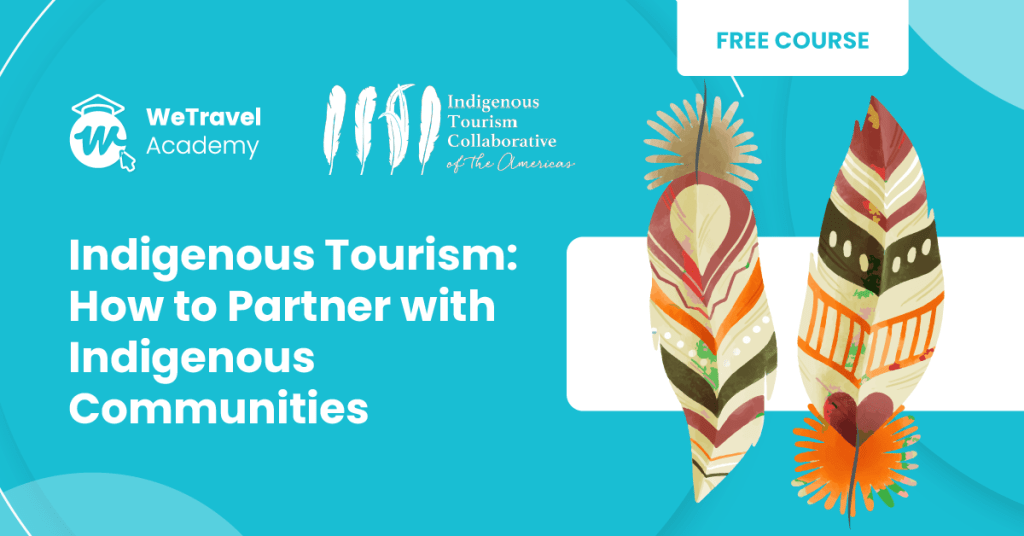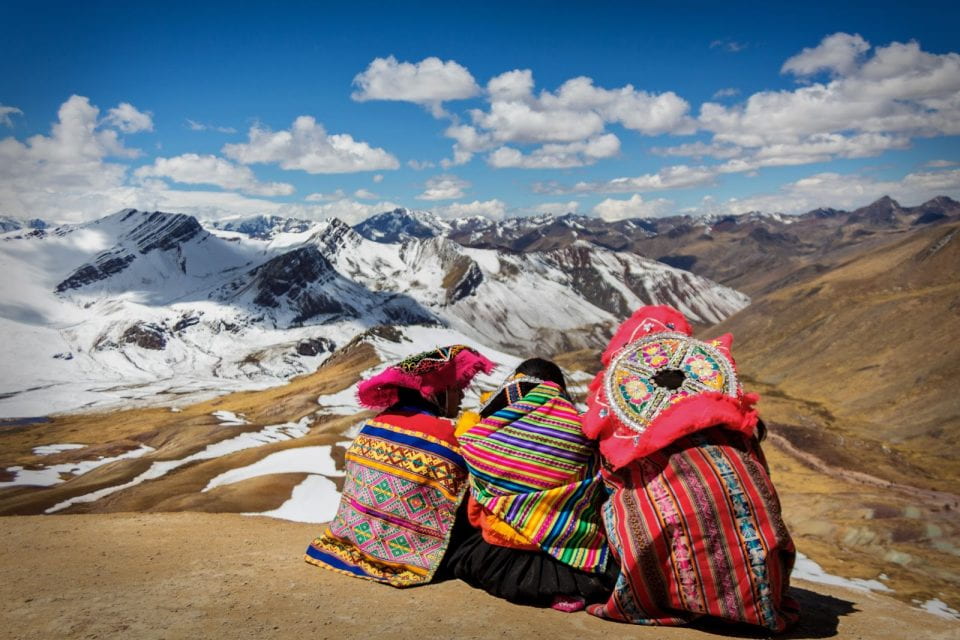The Indigenous Tourism Collaborative of the Americas (ITCA), in partnership with WeTravel, recently launched a free online course, Indigenous Tourism: How to Partner with Indigenous Communities. ITCA is a hemispheric network co-steered by George Washington University International Institute of Tourism Studies (IITS). Based on global research and co-written by IITS, the new 30-minute course has already been viewed by several hundred participants.

ITCA’s network partners include 100 Indigenous leaders, leading tourism organizations, and public and private industry champions who work together to support sustainable Indigenous tourism development across the American continents.
WeTravel is the industry-leading bookings and payments platform for multi-day travel businesses.
Indigenous Tourism: How to Partner with Indigenous Communities offers advice on fostering mutual respect, economic empowerment, and sustainable partnerships with Indigenous communities to support and strengthen Indigenous cultures through travel. The course covers parts of a previously published guide, INDIGENOUS PEOPLE AND THE TRAVEL INDUSTRY: GLOBAL GOOD PRACTICE GUIDELINES, which explores working with Indigenous tour operators and suppliers and practical tips on how to find and develop meaningful partnerships with Indigenous communities. The Global Good Practice Guidelines were researched and co-produced by Planeterra Foundation and GW IITS in partnership with G Adventures.
Seleni Matus, a member of ITCA’s Steering Committee and Executive Director of the GW IITS, said ITCA is “thrilled to have helped launch a course dedicated to fostering partnerships with Indigenous communities. Indigenous tourism is an exciting, growing, and rewarding tourism market, and we encourage the WeTravel audience to use the course to build new Indigenous partnerships that demonstrate respect for Indigenous rights, meaningful engagement and equity and fairness.”
Featured in the course video are Ed Hall, Indigenous Tourism and Economic Development Executive in Residence at George Washington University and member of the ITCA Steering Committee; Rilda Means, Director of Community Relations and Marketing for the Red Cloud Indian School, and Seleni Matus.
The free 30-minute course has three modules:
- Introduction to Indigenous Tourism: exploring the significance of Indigenous tourism, examining its economic impact, and emphasizing the importance of collaboration with Indigenous communities.
- Guidelines for Partnering with Indigenous Communities: A dive into Global Good Practice Guidelines to learn practical steps to establish respectful, equitable, and culturally sensitive business relationships in Indigenous tourism communities.
- Continue Your Learning: Discovering additional resources on the topic and encouraging the development of respectful, impactful partnerships with Indigenous communities.
Indigenous tourism is experiencing significant global growth, with a particularly remarkable surge across North America. In Canada, it accounts for nearly $2 billion of the nation's GDP, while in the United States, Native tourism has blossomed into a robust $14 billion industry. Shedding light on changing traveler preferences, a recent report developed by WeTravel revealed that 17 percent of travel businesses that created new trip offerings opted to add community-based experiences, emphasizing the growing importance for travel operators to cultivate meaningful connections with Indigenous communities.
Travelers are increasingly drawn to experiences that showcase the unique heritage and traditions of local Indigenous people. This shift emphasizes the heightened responsibility of tour operators and travel businesses to build robust, respectful relationships with Indigenous communities. Establishing such connections not only ensures the creation of authentic and enriching travel experiences but also plays a pivotal role in fostering economic empowerment and sustainable partnerships that benefit both the travelers and the communities they engage with.

